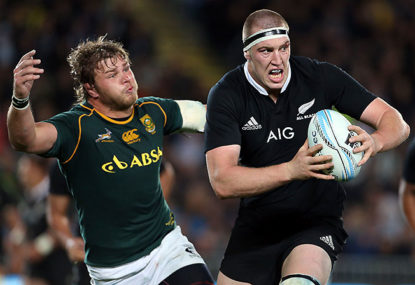When the Philistine army gathered for war against Israel, they gathered on the opposite side of a valley, preparing for what lay ahead. Goliath, measuring over nine feet tall, came out every 40 days to challenge and mock the Israelites to fight.
David, merely a teenager at the time, was running messages from home to his father at the battle front when he heard the taunts from the giant Goliath.
David’s response was to suggest he would accept the challenge of Goliath and, after some persuasion, King Saul agreed David could face this almost impossible challenge.
Dressed in a simple Shepherd’s tunic and armed with only his sling and a few stones, David went out to face Goliath.
As we all know, David slayed the giant after knocking him to the ground with one shot to head.
I would suggest if David were to face Goliath consistently with the same tactic, it is unlikely he would defeat Goliath after the first day.
Once Goliath knew the tactics of David and knew the weakness in his armour that David exploited, he would have adapted his suit of armour and David would have had to search for another weakness.
What I am getting at is New Zealand has very few weaknesses, and although the story of David and Goliath only partly resembles the same scenario as any team facing New Zealand, the principle of beating New Zealand remains the same.
To beat New Zealand you need to bring something new to the table, the same strategies of the past years are unlikely to bring you the required results.
Even when New Zealand has the perfect season, they continually seek improvement, they never remain stagnant.
It therefore means you are not chasing a stationary target, it is constantly moving.
For South Africa, Australia, England, France or any other team to beat New Zealand in a one off, never mind beat them consistently, they need to realise trying to catch New Zealand is not enough.
The only manner you will beat New Zealand is to find ways to surpass them, thereby bringing new tactics, new personnel and better structures to the game.
The All Blacks are very innovative in the way they approach each individual facet of rugby.
When you consider the restart, the coaching staff in recent seasons have decided the restart can be utilised as an attacking platform, breaking it down into bits and, with the aid of Dan Carter’s accurate boot, have become the number one team in reclaiming restarts.
In fact there isn’t a team that comes close to their ability to reclaim restarts.
Offloads have always been part of rugby, but New Zealand was the first team who effectively and accurately created a new facet of play in the manner they use offloads.
In specific, the support runner who comes off the shoulder or from directly behind the ball carrier, who could offload from the ground and thereby avoiding not only the breakdown, but also managing to hit the hole previously blocked by the would-be tackler on the original ball carrier.
It doesn’t stop there though.
South Africa in 2009 were the kick-and-chase kings of world rugby, but in only a few seasons, New Zealand has surpassed the aerial capability and accuracy with which these kicks are employed, taking it to another level.
Not only did they improve the use of the up-and-under, but had a revamp of the total use of the tactical kicking game.
There are likely many facets that can be used as examples of how the New Zealand coaching structure looks to improve individual facets of play.
Now each of these chasing nations has their own unique challenges they face. Be it structural, political, technique, player depth or whatever else you could think of.
But the simple fact is, if we want to beat the All Blacks we need to find ways to break down every facet of play and have an in-depth look at how it can be improved on a constant basis.
We need to become innovators, because the same old styles, tactics and personnel is not going to make much difference.
Problem is though, the one challenge we all have in common is that the collective thinking cap of our nations’ coaching fraternity is non existent.





























































































